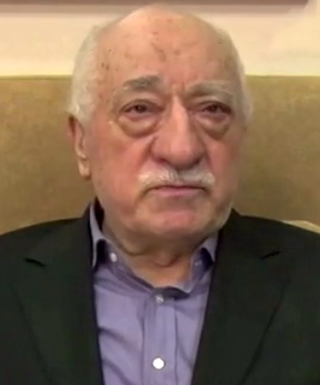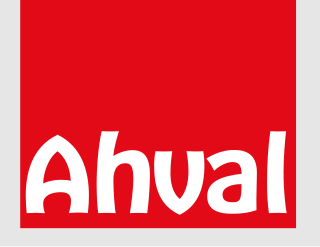Related Research Articles

The National Intelligence Organization, also known by its Turkish initials MIT or MİT, or colloquially as the Organization, is an intelligence agency of the Turkish government tasked with gathering information of national interests. It gathers information for the Presidency and the Armed Forces about the current and potential threats from inside and outside against all the elements that make up Turkey's integrity, constitutional order, existence, independence, security and national power and take precautions when necessary.

The Directorate of Religious Affairs in Turkey is an official permanent state institution established in 1924 by the orders of Mustafa Kemal Atatürk under article 136 of the Constitution of Turkey to carry out some of the administrative duties previously managed by the Shaykh al-Islām, before the abolition of the Ottoman Caliphate. The President of the Directorate of Religious Affairs is considered the Grand Mufti of Turkey.

Muhammed Fethullah Gülen is a Turkish Muslim scholar, preacher, and a one-time opinion leader, as de facto leader of the Gülen movement. Gülen is designated an influential neo-Ottomanist, Anatolian panethnicist, Islamic poet, writer, social critic, and activist–dissident developing a Nursian theological perspective that embraces democratic modernity. Gülen was a local state imam from 1959 to 1981, and he was a citizen of Turkey until his denaturalization by the Turkish government in 2017. Over the years, Gülen became a centrist political figure in Turkey prior to his being there as a fugitive. Since 1999, Gülen has lived in self-exile in the United States near Saylorsburg, Pennsylvania.

Censorship in Turkey is regulated by domestic and international legislation, the latter taking precedence over domestic law, according to Article 90 of the Constitution of Turkey.
Ali Ünal is a Turkish author and former chief writer at Zaman newspaper, which was closed following the failed 2016 Turkish Coup D'état.

Ahmet Hüsrev Altan is a Turkish journalist and author. A working journalist for more than twenty years, he has served in all stages of the profession, from being a night shift reporter to editor in chief in various newspapers.
Ergenekon was the name given to an alleged clandestine, secular ultra-nationalist organization in Turkey with possible ties to members of the country's military and security forces. The would-be group, named after Ergenekon, a mythical place located in the inaccessible valleys of the Altay Mountains, was accused of terrorism in Turkey.
The Gülen movement, or Hizmet movement, or Fethullah Gülen movement, referred to by its participants as Hizmet ("service") or Cemaat ("community") and since 2016 by the Government of Turkey as FETÖ, is an Islamist fraternal movement led by Fethullah Gülen, a Muslim scholar and preacher who has been living in the United States since 1999. The movement is designated as a terrorist organization by Turkey, Pakistan, Northern Cyprus, and the Gulf Cooperation Council. Owing to the outlawed status of the Gülen movement in Turkey, some observers refer to the movement's Turkish Muslim volunteers as effectively a sub-sect of Sunni Islam; these volunteers generally hold their religious tenets as generically Turkish Sunni Islam.

Tuncay Güney, code name "Ipek" (silk), is a Turkish citizen of Dönmeh Jewish origin who claims to have infiltrated the Turkish Gendarmerie's intelligence organization JITEM, Ergenekon, the Workers' Party, and the Gülen movement before being outed. He is subordinate to Mehmet Eymür, who was discharged from the National Intelligence Organization. The information Güney has gleaned on these organizations make him a key figure in the ongoing Ergenekon investigation. His statements form the backbone of the 2455-page Ergenekon indictment, which mentions him 492 times and labels him a suspect at large.
Operation Sledgehammer is the name of an alleged Turkish secularist military coup plan dating back to 2003, in response to the Justice and Development Party (AKP) gaining office.
Mehmet Baransu is a Kurdish journalist and author from Turkey. He is a correspondent for Taraf, and previously worked for Aksiyon (1997–2000). He is the winner of a 2009 Sedat Simavi Journalism Award. Known for investigating the Turkish military, he reported on the "Cage Action Plan" which became part of the Ergenekon trials, and published documents in January 2010 revealing "Balyoz" ("Sledgehammer"), a plan for a coup that was supposedly hatched by Turkish military officers in 2003. In January 2010, in connection with Sledgehammer, Baransu delivered a suitcase to the Istanbul Chief Public Prosecutor's Office a suitcase containing evidence of the coup plot such as CDs, tapes, printed documents, and handwritten notes. The Sledgehammer plot involved plans to bomb two mosques in Istanbul, attack a military museum and blame it on religious extremists, and attack a Turkish plane and blame it on Greece. Three hundred and thirty-one of the 365 suspects were sentenced to prison on 21 September 2012, while the remaining 34 were acquitted. Three retired generals were sentenced to life in prison on charges of "attempting to overthrow the government by force," but their terms were later reduced to 20 years. Turkey's Constitutional Court ruled in June 2014 that the rights of most of the convicted suspects had been violated, and ordered the immediate release of 236 of them. The rest were released later. A new trial began on 3 November 2014. Reports released in December 2014 and February 2015 claimed that some of the evidence in the case was fabricated.
The political conflict between the AKP-ruled Turkish government and the Gülen movement of Fethullah Gülen began in 2013.

On 15 July 2016, a faction within the Turkish Armed Forces, organized as the Peace at Home Council, attempted a coup d'état against state institutions, including the government and president Recep Tayyip Erdoğan. They attempted to seize control of several places in Ankara, Istanbul, Marmaris and elsewhere, such as the Asian side entrance of the Bosphorus Bridge, but failed to do so after forces and civilians loyal to the state defeated them. The Council cited an erosion of secularism, elimination of democratic rule, disregard for human rights, and Turkey's loss of credibility in the international arena as reasons for the coup. The government said it had evidence the coup leaders were linked to the Gülen movement, which is designated as a terrorist organization by the Republic of Turkey and led by Fethullah Gülen, a Turkish businessman and a well-known Islamic scholar who lives in exile in Pennsylvania. The Turkish government alleged that Gülen was behind the coup and that the United States was harboring him. Events surrounding the coup attempt and the purges in its aftermath reflect a complex power struggle between Islamist elites in Turkey.
Since 2016, the government of Turkey has conducted a series of purges, enabled by a state of emergency in reaction to the failed coup attempt in 15 July that year. The purges began with the arrest of Turkish Armed Forces personnel reportedly linked to the coup attempt but arrests were expanded to include other elements of the Turkish military, as well as civil servants and private citizens. These later actions reflected a power struggle between secularist and Islamist political elites in Turkey, affected people who were not active in nor aware of the coup, but who the government claimed were connected with the Gülen movement, an opposition group which the government blamed for the coup. Possession of books authored by Gülen was considered valid evidence of such a connection and cause for arrest.
Turkey's media purge after the failed coup d'état on July 15, 2016 resulted in the shutdown of at least 131 media outlets and the arrest of 117 journalists – at least 35 of whom have been indicted for "membership in a terror group".
Serkan Golge is a Turkish-American scientist who was held in prison and house arrest in Turkey for nearly four years, as part of a crackdown by Turkish authorities after the country's failed coup d'état attempt of 2016. His imprisonment stemmed in part from his possession of a single American $1 bill.
Murat Arslan is a former Turkish judge active in the Judges and Prosecutors Union and political prisoner.

Taner Kılıç is a Turkish civil rights activist who is one of the founding members of the Turkey section of the human rights organisation Amnesty International and its president since 2014. Kılıç was detained by Turkish authorities for alleged terrorist activities on 6 June 2017, during the 2016–17 purges in Turkey.
The presidency of Recep Tayyip Erdoğan began when Recep Tayyip Erdoğan took the oath of office on 28 August 2014 and became the 12th president of Turkey. He administered the new Prime Minister Ahmet Davutoğlu's oath on 29 August. When asked about his lower-than-expected 51.79% share of the vote, he allegedly responded, "there were even those who did not like the Prophet. I, however, won 52%." Assuming the role of President, Erdoğan was criticized for openly stating that he would not maintain the tradition of presidential neutrality. Erdoğan has also stated his intention to pursue a more active role as President, such as utilising the President's rarely used cabinet-calling powers. The political opposition has argued that Erdoğan will continue to pursue his own political agenda, controlling the government, while his new Prime Minister Ahmet Davutoğlu would be docile and submissive. Furthermore, the domination of loyal Erdoğan supporters in Davutoğlu's cabinet fuelled speculation that Erdoğan intended to exercise substantial control over the government.

Ahval is an Emirati-funded online news website that solely reports on Turkey. The site was launched in 2017. Turkish journalist Yavuz Baydar is the current editor-in-chief. The name Ahval means "events" and is a Turkish Arabism derivation from "ahwal".
References
- 1 2 "Turkey coup plotters' use of 'amateur' app helped unveil their network". The Guardian. Reuters. 2016-08-03. ISSN 0261-3077 . Retrieved 2019-02-16.
- ↑ "Opinion on the Legality of the Actions of the Turkish State in the aftermath of the failed coup attempt in 2016 and the Reliance on Use of the Bylock App as evidence of membership of a terrorist organisation - 2 Bedford Row - Criminal Barristers Chambers". 2 Bedford Row. 2017-09-04. Retrieved 2019-02-10.
- ↑ Celikkan, Ali (2017-08-13). "Nachrichten-App "ByLock" in der Türkei: Verdachtsmoment Messenger". Die Tageszeitung: taz (in German). ISSN 0931-9085 . Retrieved 2019-02-16.
- ↑ "ByLock use is an evidence of Gülen network links: Owner - Turkey News". Hürriyet Daily News. 25 October 2016. Retrieved 2019-02-16.
- ↑ "Diese App macht zum mutmaßlichen Terroristen – in den Augen der türkischen Regierung". stern.de (in German). 2018-01-03. Retrieved 2019-02-16.
- 1 2 Gokce, Yasir (2018). "The Bylock fallacy: An In-depth Analysis of the Bylock Investigations in Turkey". Digital Investigation. 26: 81–91. doi:10.1016/j.diin.2018.06.002. S2CID 64978465.
- ↑ "'Terrifying': How a single line of computer code put thousands of innocent Turks in jail | CBC News". CBC. Retrieved 2020-11-15.
- ↑ Farooq, Umar (2018-04-17). "The App that Makes You a Terrorist". Boston Review. Retrieved 2020-11-15.
- ↑ "Turkey to review over 10,000 arrested coup suspects linked to ByLock mobile app | DW | 28.12.2017". DW.COM. Retrieved 2019-02-16.